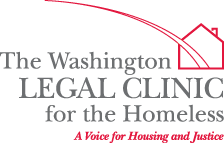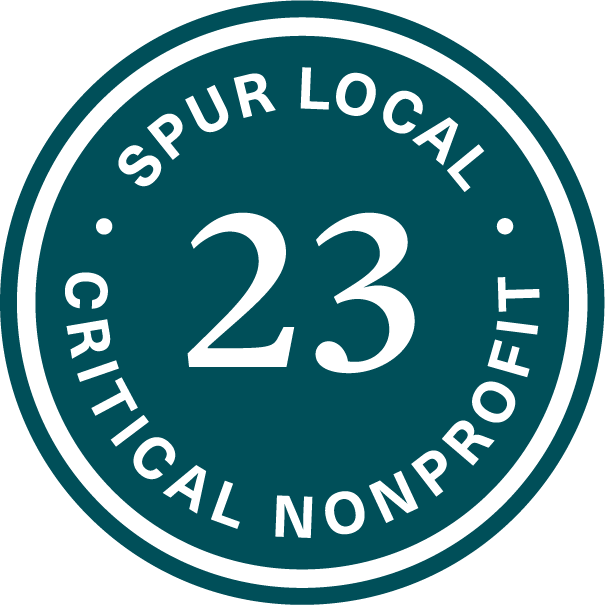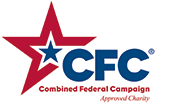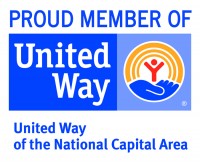“Move into housing you can’t afford now and are unlikely to afford in 12 months. And then the inevitable happens, and you are homeless again. This is not moral and it is not humane.”
Rev. John Graham, Rector of Grace Episcopal Church in Georgetown, President of the Board of Good Faith Communities Coalition
In May, the Legal Clinic released a report on the District’s rapid re-housing program for homeless families called “Set Up to Fail” (several publications wrote about the report, including The Economist, Washington Post, and Washington City Paper). In June, at least 17 families submitted testimony to the DC Council describing their experiences in rapid re-housing. The report and families’ testimonies highlight strikingly similar flaws with the family rapid re-housing program, including:
- Unsafe housing conditions – “My daughter was bit by a rodent inside my apartment, so we had to have an emergency transfer to another apartment. . . . My electricity doesn’t work properly and I don’t have a light in every room of [my current] apartment. I bathe my children in the dark because the lights don’t work.” B.
- Paying too much for rent – “I only receive TANF and I need to pay utilities. I have no money to get on the bus to look for a job. It’s like I am homeless but in an apartment.” C.
- Unhelpful case managers – “[My case manager] would come monthly to check off the budget form and look at my rent receipts, but not much more than that.” R.
- Unable to afford the rent after the program ends – “Life is a daily struggle now. I don’t know where my housing is going to come from. . . . The only thing they have told me is that I can take my family back to the shelter.” M.
At this point, the problems with the District’s family rapid re-housing program are well-established. Unfortunately, the Department of Human Services (DHS) has shown little interest in reforming the program, despite the Bowser Administration’s oft-stated goal of ending homelessness by helping families maintain safe, stable housing. Instead, the Administration has proposed a bill, now pending before the DC Council Committee on Human Services, that reinforces the features of the program that have left so many families at risk of cycling back into homelessness, including:
- Formalizing the current unlawful practice of terminating families’ rental subsidies based on arbitrary time limits;
- Degrading families’ current due process rights by making time limit terminations appealable only to the Director of DHS instead of an impartial body like the Office of Administrative Hearings; and
- Making the rules for the program even less available to the public by allowing those rules to be in contracts rather than regulations.
The DC Council now has an opportunity to reform rapid re-housing legislatively to ensure that the more than 1,300 families in program are not set up to fail. The changes to the law that are described below – which were jointly proposed by Bread for the City, DC Coalition Against Domestic Violence, Children’s Law Center, Fair Budget Coalition, Legal Aid Society of DC, Neighborhood Legal Services Program, and the Legal Clinic – would help to increase the housing stability of families in rapid re-housing.
- Ensure that families have safe housing
The Council should add legal protections for families to make sure that they are not trapped in apartments with terrible conditions or safety risks. We recommend requiring Housing Quality Inspections of units prior to families moving in, allowing families to withhold rent if the landlord does not fix housing code violations, and helping families to quickly relocate when the health or safety of a household member is at risk.
- Increase stability during the program
The Council should help families maintain stable housing while they are participating in rapid re-housing. We recommend requiring that families pay no more than 30% of their income towards their housing costs – the standard, nation-wide measure of affordability. The current rules, which require families to pay as much as 60% of their income towards the rent, not including utilities, achieve no public policy, are unnecessarily burdensome and prevent families from achieving stability.
- End the Rapid Re-housing Cliff
DHS and the Council have come to recognize that time limits don’t make sense for crucial public benefits such as TANF. Housing is no different. In the words of one of several DC faith leaders who submitted testimony opposing the Rapid Re-housing Cliff: “A safety net is not a safety net if its support is time limited.” Rather than terminating families’ rental subsidies and sending them over a cliff based on an arbitrary time limit, the Council should require DHS to consider families’ individual circumstances. We recommend only ending assistance after confirming that the family received appropriate and consistent case management, evaluating the family for other permanent housing programs, and ensuring that the family is able to maintain housing stability without further assistance from the program. A housing program that cannot meet such basic standards would not reflect our DC values. If the program cannot exist without causing trauma and instability to its participants, then it is not a program that DC residents should be funding with their tax dollars.
The hundreds of families in rapid re-housing deserve better than the status quo, and certainly better that what the Bowser Administration is proposing. The bill is scheduled for mark-up by the Committee on Human Services on September 20. Now is the time for the Council to act to improve this program and ensure that all families in DC have a safe, stable place to call home.





